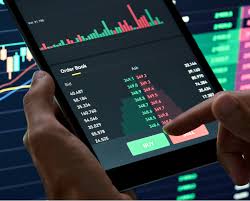
Understanding Crypto Trading Platforms
The cryptocurrency market has exploded in popularity over the last decade, with thousands of digital currencies available for trading. As a result, an increasing number of traders and investors are turning to Crypto Trading Platforms https://www.bitchute.com/video/ry7VDOqIGK1B/ to facilitate their buying and selling transactions. This article will explore what crypto trading platforms are, the various types available, and what makes them essential in the crypto ecosystem.
What Are Crypto Trading Platforms?
Crypto trading platforms are online marketplaces where individuals can buy, sell, and exchange cryptocurrencies. These platforms operate much like traditional stock exchanges, offering users a way to trade digital assets securely and efficiently. Most platforms enable users to create accounts, deposit funds, and execute trades within a user-friendly interface. Users can choose between centralized exchanges (CEX), decentralized exchanges (DEX), and other trading platforms based on their preferences and requirements.
Types of Crypto Trading Platforms
Understanding the types of crypto trading platforms available is essential for traders who want to optimize their trading strategies. The primary types include:
Centralized Exchanges (CEX)
Centralized exchanges are the most common type of trading platform. They are managed by centralized organizations that facilitate trading, maintain order books, and hold users’ funds in secure wallets. Examples include Binance, Coinbase, and Kraken. These platforms offer higher liquidity, faster transactions, and a broader range of trading pairs. However, users must trust the exchange with their funds, which introduces a level of risk.
Decentralized Exchanges (DEX)
Unlike centralized exchanges, decentralized exchanges operate on blockchain protocols that allow peer-to-peer trading without intermediaries. Users maintain control of their assets, and trades occur directly between users through automated smart contracts. Uniswap and SushiSwap are popular examples of DEX platforms. While DEXs provide greater privacy and security, their liquidity can be lower, and the trading process may be less intuitive for beginners.
Peer-to-Peer (P2P) Platforms

Peer-to-peer platforms connect buyers and sellers directly, allowing them to trade cryptocurrencies without the involvement of an intermediary. These platforms often support various payment methods and can offer more favorable rates. LocalBitcoins and Paxful are well-known P2P platforms. However, users should exercise caution and conduct thorough due diligence when engaging in P2P trading to avoid scams.
Brokerage Platforms
Brokerage platforms serve as intermediaries that allow users to buy or sell cryptocurrencies at set prices. Unlike regular exchanges, brokerages do not facilitate order books; they guarantee liquidity by selling directly to users. This model can simplify the buying process for newcomers but may come with higher fees. well-known brokerage platforms include eToro and Robinhood.
Benefits of Using Crypto Trading Platforms
There are several advantages to using crypto trading platforms:
- Access to a Variety of Cryptocurrencies: Most exchanges list multiple cryptocurrencies, allowing users to diversify their portfolios easily.
- Real-Time Data and Analysis Tools: Many platforms provide real-time market data and tools to analyze prices, trends, and trading patterns, enabling traders to make informed decisions.
- Ease of Use: Crypto trading platforms typically feature user-friendly interfaces and mobile applications, making it easy for users to trade on the go.
- Security Features: Reputable platforms invest in security measures to protect users’ assets, including two-factor authentication (2FA) and cold storage wallets.
Factors to Consider When Choosing a Crypto Trading Platform
When selecting a crypto trading platform, it’s essential to consider several factors:
- Security: Ensure the platform has robust security protocols in place to protect your funds.
- Fees: Review the fee structure, including trading fees, withdrawal fees, and any other charges, to understand the total cost of trading.
- User Experience: Choose a platform that offers an intuitive interface and accommodates your level of expertise.
- Customer Support: Reliable customer service can help resolve issues quickly, so look for platforms with good support options.
The Future of Crypto Trading Platforms
As the cryptocurrency market matures, we anticipate significant advancements in crypto trading platforms. Innovations in blockchain technology will likely lead to more efficient and secure trading options, while regulatory developments may shape the future landscape of the industry. Furthermore, the integration of artificial intelligence and machine learning tools could facilitate more sophisticated trading strategies, while enhanced user experiences may attract a broader audience.
Conclusion
Crypto trading platforms play an indispensable role in the growth and development of the cryptocurrency market. By understanding the various types of platforms, their benefits, and the factors to consider when trading, investors can make informed choices that align with their goals. As technology continues to evolve, the future of crypto trading platforms appears promising, poised to accommodate the growing number of traders in the digital asset space.

